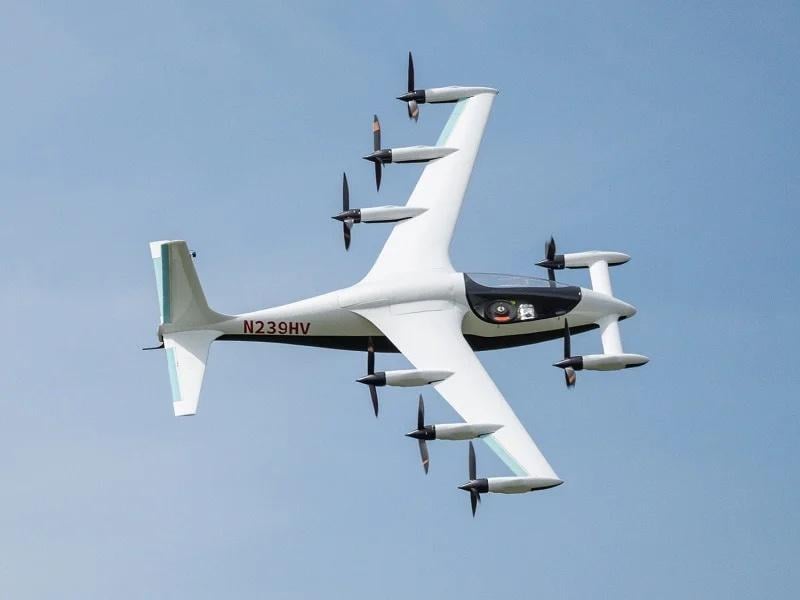
Even as news broke that the decision had been made to cease operations of advanced air mobility (AAM) startup Kittyhawk, the company was advertising job openings in human resources, purchasing and engineering, and for a flight test engineer.
The company announced the decision in a LinkedIn post on Sept. 21.
It is the first major shakeup in the emerging AAM industry, which has attracted billions of dollars of investment and support from government agencies, ranging from city councils to federal agencies. Kittyhawk was ranked 10th on the Aviation Week/SMG Consulting Advanced Air Mobility Reality Index as recently as August 2022.
Kittyhawk was, per Larry Page's vision, a moonshot, a make it or break it venture,” says Sergio Cecutta, partner at SMG Consulting and the developer of the AAM Reality Index. “They went for a vehicle that would allow for point-to-point passenger transportation without any first or last mile multimodality. Heaviside was a product ahead of the urban air mobility market development.”
Google founder Larry Page launched Kittyhawk as Zee.Aero, hiring Sebastian Thrun to create a new electric vertical takeoff and landing aircraft (eVTOL). Thrun had led experimental projects at Google, including its efforts to develop self-driving cars, which spun off to a new business called Waymo. The company unveiled its Flyer air vehicle in 2018 and then introduced the Cora, a two-seat autonomous air taxi.
In 2019, Kittyhawk unveiled a third eVTOL, Project Heaviside. In the same time period, the company entered into a partnership with Boeing to bring together the innovation of Kittyhawk’s Cora division with Boeing’s scale and experience. The partners then established a joint venture, Wisk Aero, to advance the autonomous air taxi. Then in 2020, the company shut down its Flyer program while continuing work on Heaviside.
Kittyhawk is among a select group of eVTOL developers chosen by the U.S. Air Force’s Agility Prime to take part in development efforts to benefit commercial transport, but also provide new capabilities for the military.
Ironically, the Kittyhawk announcement came two days after Wisk Aero released its concept of operations for the autonomous air taxi. There are no plans to shut down Wisk.






Comments